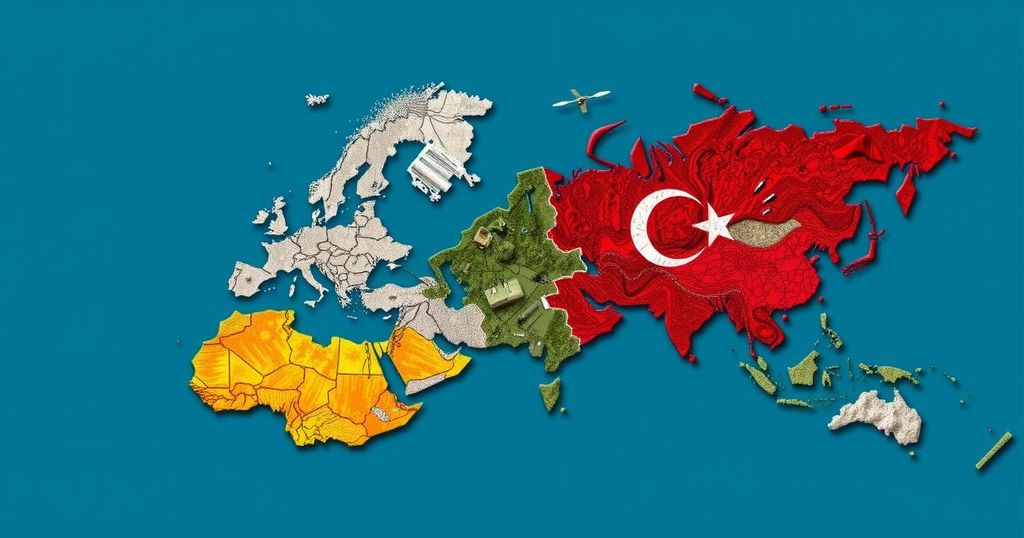The article discusses the hypocrisy of Western critiques of Azerbaijan’s environmental policy while the country contributes only 0.1% to global greenhouse gas emissions. It highlights Azerbaijan’s investments in green energy and questions the motives behind Western criticisms, particularly in light of recent agreements for increased gas supplies. As COP29 approaches, the tension between geopolitical narratives and climate responsibilities suggests a deeper economic strategy at play, urging meaningful Western participation at the conference.
Recent efforts aimed at undermining Azerbaijan’s role in the upcoming Conference on Climate Change illustrate a larger hypocrisy regarding global emissions and climate responsibility. Critics in the West have accused Azerbaijan of environmental irresponsibility due to its status as an oil and gas producer. However, it is vital to acknowledge that Azerbaijan accounts for only a marginal share of global greenhouse gas emissions, contributing a mere 0.1%. In stark contrast, the European Union and the United States, both major critics of Azerbaijan’s hydrocarbon economy, are responsible for approximately 20% of global pollution. This dissonance raises questions about the motives behind these criticisms, particularly given the EU’s recent agreements to increase gas supplies from Azerbaijan. Azerbaijan is actively pursuing a green transition, with significant investments from oil and gas revenues being channeled into renewable energy initiatives. Azerbaijani President Ilham Aliyev has emphasized this commitment, remarking, “Azerbaijan also invests revenues from oil and gas productions in green energy. This clearly demonstrates that being rich in fossil fuels does not prevent us from our strides towards promoting a green agenda.” Furthermore, detractors of Azerbaijan have shifted the narrative, introducing unsubstantiated claims of ethnic cleansing and human rights violations. The European Parliament has actively engaged in discussions regarding these allegations, urging sanctions against Azerbaijan and calling for boycotts of the upcoming COP29 conference. While the urgency of climate change demands collective action, some Western politicians appear more preoccupied with geopolitical narratives than with the realities of global warming. It is speculated that their abstention from COP29 could be motivated by a reluctance to engage with financial responsibilities under climate agreements, particularly concerning support for developing nations that suffer disproportionately from climate impacts. As intense negotiations surrounding climate financing unfold, the collective West risks isolating itself from constructive dialogue by perpetuating divisive narratives against Azerbaijan. This could exacerbate tensions and hinder global efforts to combat climate change. The health of our planet necessitates that nations, including those in the West, engage in open communication and collaborative efforts. The most productive approach for the West would be to transcend the populist rhetoric influenced by external lobbying and participate meaningfully at COP29. Such engagement would demonstrate accountability and a genuine commitment to the global climate agenda.
Azerbaijan has found itself at the center of a contentious debate regarding its role as an oil and gas producer amidst the global climate crisis. The country, which produces fossil fuels, is being criticized by Western nations for its emissions; however, these criticisms are countered by the fact that Azerbaijan contributes negligibly to global greenhouse gas emissions. The crux of the conflict seems to revolve around geopolitical considerations, with recent discussions in the European Parliament focusing on accusations against Azerbaijan rather than constructive climate dialogue. As the COP29 approaches, the higher stakes of climate financing negotiations reveal potential economic motivations behind criticisms and possible boycotts of the conference.
In summary, the current narrative surrounding Azerbaijan’s environmental responsibilities juxtaposed with the West’s significantly higher contributions to global emissions raises critical questions about the sincerity and motivations behind Western criticism. Azerbaijan’s commitment to a green transition, alongside its minor share of emissions, exemplifies the complexities of the climate crisis. It is imperative that Western nations participate actively and constructively in COP29, moving beyond divisive politics towards collaborative solutions for climate challenges that affect all.
Original Source: aze.media






